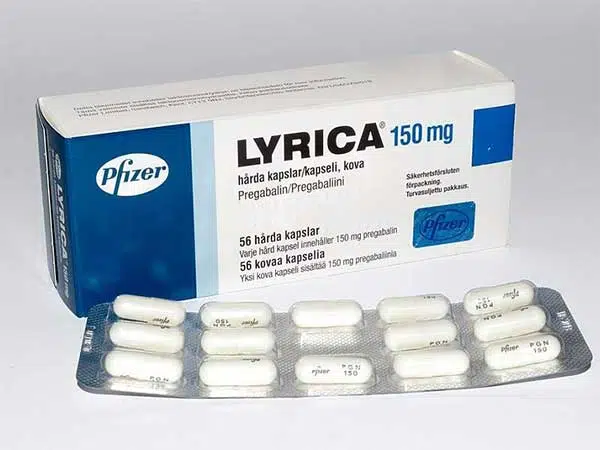Lyrica (pregabalin oral): Overview, Uses, & Abuse Potential

Lyrica is the brand name for a prescription drug called pregabalin. It’s used to treat muscle and nerve pain caused by conditions like fibromyalgia, diabetes, shingles, and spinal cord injuries. It can also help treat epilepsy and generalized anxiety disorder.
The United States Food and Drug Administration (FDA) classifies Lyrica as a Schedule V controlled substance. That means it’s sometimes abused. People who abuse Lyrica may become addicted to it.
Lyrica Abuse
Lyrica slows down your central nervous system (CNS), which can make you feel relaxed and happy. That’s why some people abuse it. Lyrica abuse occurs when you use Lyrica in a manner not prescribed by a doctor.
For example, you may take it more often than prescribed, take higher doses than prescribed, or take it without a prescription.
In addition, some people mix Lyrica with other drugs, especially other CNS depressants like opioids and alcohol. Mixing CNS depressants may increase the drugs’ pleasant effects. However, like other forms of Lyrica abuse, it also poses serious health risks.
Effects Of Lyrica Abuse
The most common effects of Lyrica abuse are increased side effects, overdose, and addiction.
Increased Side Effects
Like other prescription medications, Lyrica can have side effects. Lyrica’s most common side effects include:
- drowsiness
- dizziness
- nausea and vomiting
- diarrhea
- constipation
- dry mouth
- gas and bloating
- impaired coordination
- increased appetite and weight gain
- anxiety
- trouble concentrating
- memory problems
Lyrica can also have more serious side effects, including:
- depression and suicidal thoughts
- itching, blisters, hives, or rash
- shortness of breath or trouble breathing
- swelling of the arms, hands, feet, lower legs, or ankles
- swelling of the head, neck, face, eyes, throat, mouth, lips, gums, or tongue
- vision changes, such as blurry vision or double vision
- muscle pain
- chest pain
If you or someone you know experiences these more serious effects, contact a medical professional as soon as possible.
Overdose
When you use too much Lyrica or mix it with other drugs, you may overdose. Common symptoms of a Lyrica overdose include:
- mood swings
- confusion
- irritability
- sweating
- shaking
- trouble breathing
- changes in blood pressure and/or heart rate
- loss of consciousness
If you think you or someone you know is overdosing on Lyrica, seek medical help right away. When left untreated, a Lyrica overdose may be life-threatening.
Lyrica Addiction
Lyrica addiction is a serious disease that makes you feel unable to stop using the drug even if you want to. As a result, you may fall behind at work or school, withdraw from your friends and family, and lose interest in activities that don’t involve drug use.
You may also experience tolerance and physical dependence. Tolerance means that over time, your body adjusts to the drug’s effects. You’ll then need increasingly higher or more frequent doses to feel the desired effects. This increases your risk of side effects and overdose.
Physical dependence means that your body starts relying on Lyrica to function normally. If you stop using it without the guidance of a doctor, you may experience symptoms of withdrawal.
Lyrica Withdrawal
The most common Lyrica withdrawal symptoms include:
- intense cravings for Lyrica
- anxiety
- depression and suicidal thoughts
- mood swings
- headache
- trouble sleeping
- confusion
- sweating
- nausea and vomiting
- seizures
Some withdrawal symptoms only last for about one or two days after your last dose of Lyrica. Other symptoms may continue for several weeks.
You’re more likely to experience withdrawal symptoms if you quit Lyrica too quickly. That’s why you should not try quitting the drug until you talk to your doctor. They can help you avoid or reduce withdrawal symptoms by slowly tapering off the drug.
Your doctor may also recommend that you attend a medical detox program. During medical detox, a team of medical professionals will closely monitor your physical and mental health as you get Lyrica out of your system.
They may also prescribe medications to treat certain withdrawal symptoms, such as antidepressants or anti-nausea medications.
Lyrica Addiction Treatment Options
While medical detox treats withdrawal symptoms, it does not treat the psychological parts of addiction, such as cravings. That’s why people who are addicted to Lyrica should seek help at a drug addiction treatment program. These programs offer recovery-focused services such as:
- mental health counseling, in which a therapist will help you manage cravings and any underlying mental health concerns that may have contributed to your Lyrica abuse
- support groups, in which you can connect with other people recovering from drug abuse and addiction
- aftercare planning, in which doctors will help you plan strategies to reduce your risk of relapse, such as ongoing therapy, regular exercise, and employment assistance
Some treatment programs are inpatient, meaning you live at the treatment center. Other programs are outpatient, meaning you live at home and regularly visit the treatment center. Talk to a doctor or addiction specialist to determine which option is right for you.
To learn more about Lyrica addiction treatment options, please contact an Ark Behavioral Health specialist. Our inpatient and outpatient treatment programs offer personalized, evidence-based care to help you or your loved one stay drug-free.
Written by Ark Behavioral Health Editorial Team
©2024 Ark National Holdings, LLC. | All Rights Reserved.
This page does not provide medical advice.
United States Food and Drug Administration - LYRICA (pregabalin)
United States National Center for Biotechnology Information - Pregabalin
United States National Library of Medicine - Pregabalin

Questions About Treatment?
Ark Behavioral Health offers 100% confidential substance abuse assessment and treatment placement tailored to your individual needs. Achieve long-term recovery.
100% confidential. We respect your privacy.
Prefer Texting?
Our friendly support team is here to chat 24/7. Opt out any time.







 Learn More
Learn More








